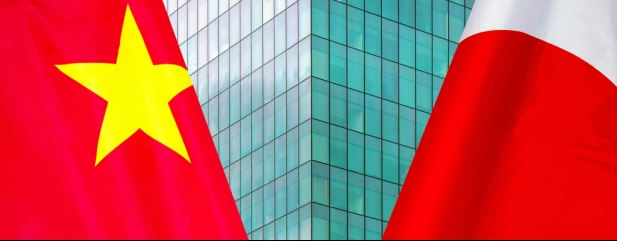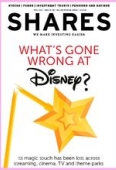Archived article
Please note that tax, investment, pension and ISA rules can change and the information and any views contained in this article may now be inaccurate.
This fund has a smart way to find good value stocks globally

A screening tool used by asset manager Artemis suggests investors need to look at unloved parts of the market, not chase 2023’s winning trades. This year, investing in AI-related names including $1 trillion chip designer Nvidia (NVDA:NASDAQ) was a way to get rich, yet Artemis’ SmartGARP tool suggests that is not the best place to go fishing.
‘Our system has been sending a consistent message that the most attractive prospective returns are to be found in parts of the market that have fallen out of favour, not chasing the mega-cap growth stocks in the US,’ says Peter Saacke, who runs the Artemis SmartGARP Global Equity Fund (B2PLJP95). He suggests the UK, China and Japan are throwing up the best opportunities.
The goal is to find stocks globally which offer growth at a reasonable price. Outperformance has been impressive over the past 20 years with the fund delivering a 600% total return versus 498% from the MSCI All Countries World index priced in sterling.
On a shorter-term basis, the performance of the fund is mixed. It has lagged the benchmark on a five and 10-year view but outperformed on a three-year basis.
VALUE TILT
At the end of June, Artemis SmartGarp’s portfolio was trading on an average 8 times earnings versus 15.8-times from the MSCI All-Countries World Index benchmark.
HOW DOES THE SYSTEM WORK?
Artemis created the SmartGARP system to take the emotion out of investing. It analyses factors such as earnings growth, valuation, revisions to earnings estimates and ESG (environmental, social and governance). The system scores companies between zero (worst) and 100 (best), and Saacke principally focuses on those scoring 90 or more and he sells holdings if their score drops below 50.
This could lead to the argument a computer is running the show, but Saacke insists there is still a need for human intervention. ‘We try to codify everything we have got in our heads. But the one thing you can never codify is new information, new datasets becoming available, and us analysing them. This refinement of the process needs a human.
‘SmartGARP, however smart we make it, will always be a simplification of the real world, and the real world is messy.’
Accounting changes and the impact of acquisitions and disposals are examples of areas which need human analysis, explains the fund manager. He says it takes time for analysts to update their models to reflect acquisitions, and that you have to question if big deals are worth it.
‘Our programme runs every night automatically and it never sleeps. But it’s good to have someone on top who says, “hang on a minute” when analysing stocks.’
NO EMOTION APPROACH
The fund has positions in various banks, a sector which typically draws a Marmite reaction from investors. Some love the dividends and are happy to hold for a long time, others don’t like the tightening regulation, the poor history of mistakes such as mis-selling, and the complexity of the accounts.
SmartGARP does not feel any emotions, it just recognises that companies in the banking sector can trade on low price to earnings multiples, they typically pay a growing stream of dividends and offer high yields, says Saacke. The computer’s conclusion might be that certain stocks in this sector are trading at the wrong price.
LONG VERSUS SHORT-TERM HOLDINGS
The manager says the best returns for the fund have come from stocks which maintain a decent score for more than 18 months. Yet this is not a typical buy and hold portfolio. The manager looks for opportunities and is happy to own stocks for short periods.
For example, Johnson & Johnson (JNJ:NYSE) became a new position approximately six months ago but it did not hang around for long. ‘The healthcare company is well diversified, has a very stable earnings profile and fantastic balance sheet. The shares had de-rated so we bought as it was scoring in the high nineties.
‘Everything was going swimmingly well but then analysts cut forward earnings estimates and the score dropped to the fifties. We sold because of specific news flow on litigation.
‘It is a good example where it looked like things were aligning, the stock re-rated after we bought and earnings were going up. Then suddenly, it goes the other way.’
THOUGHTS ON THE UK AND CHINA
The fund’s top holdings include Alphabet (GOOGL:NASDAQ), JPMorgan Chase (JPM:NYSE) and PICC Property & Casualty (2328:HKG), the latter being mainland China’s largest non-life insurance company. In a period when China is firmly out of favour with the markets, the presence of this stock illustrates how the fund is happy to look anywhere for opportunities and not simply in places doing well.
‘We invest in companies, not countries. If you look at the headlines coming out of China, you would not want to touch it with a bargepole. Our job is not to pass judgment on politics but just the merits of individual companies, albeit factoring in political and geopolitical risk.’
That might explain why it is also happy to hold UK shares despite an uncertain economic backdrop and the market being widely unloved by investors. The key attraction is being able to invest in companies whose growth prospects are undervalued by the market.
‘The election in the UK next year is not going to suddenly transform the landscape into a booming economy, but at the starting valuations, you can easily see plenty of companies delivering strong profit growth – and that is not reflected in valuations.’
Similarly in China, sentiment is depressed and valuations are ‘crassly low’ that it just requires news flow to become slightly less negative for share prices to shoot upwards, implies the fund manager.
You will also find positions in Irish and Greek banks in the portfolio, again not the obvious places someone might expect to make money. They have been through tough times but they are now heading in the right direction, argues Saacke.
The manager’s ethos is to start with a stock not priced for perfection. Instead, it focuses on things priced for poor outcomes and if they can deliver even moderate success, it believes it stands a good chance of making money.
That sounds like a high-risk approach if one were to blindly look at the cheapest stocks on the market. However, if you screen the universe to find cheap stocks with positive qualities (as per the Artemis fund approach), it theoretically helps to reduce the risks. Filtering out the ones which are likely to implode on unwelcome news.
DISCLAIMER: The author has a personal investment in Artemis SmartGARP Global.
Important information:
These articles are provided by Shares magazine which is published by AJ Bell Media, a part of AJ Bell. Shares is not written by AJ Bell.
Shares is provided for your general information and use and is not a personal recommendation to invest. It is not intended to be relied upon by you in making or not making any investment decisions. The investments referred to in these articles will not be suitable for all investors. If in doubt please seek appropriate independent financial advice.
Investors acting on the information in these articles do so at their own risk and AJ Bell Media and its staff do not accept liability for losses suffered by investors as a result of their investment decisions.
Issue contents
Feature
Great Ideas
News
- Greggs experiences some growing pains but there is no cause for alarm
- Federal Trade Commission lawsuit could be the first step in an Amazon break up
- The UK stock market is almost back on top in the European rankings
- Why Digital 9 Infrastructure’s shares are down 60% over one year
- Future shares jump 20% as publisher paints improved full-year picture
- Could a wet summer derail recovery at Wetherspoons?
- Soft drink and snack giant PepsiCo's earnings have surprised positively twice this year

 magazine
magazine








